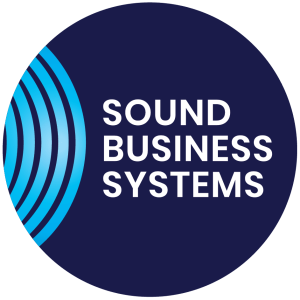
Three trends that will define healthcare in 2024 and beyond

Share this article:
In 2023, health systems exert great effort to attain the Quintuple Aim despite high patient volumes, severe staff shortages, and shrinking margins.
Looking ahead to 2024, cost reduction will likely be an even greater imperative as economic uncertainty persists and margins remain low. However, healthcare organizations must not prioritize one aim over the other. Their focus should be on improving patient experiences, managing population health more effectively, enhancing clinician well-being, and advancing health equity.
With the aid of AI-powered healthcare technology, organizations can overcome current challenges, positively impact all five aims, and accelerate healthcare transformation in the coming year and beyond. Here are three trends that will shape healthcare in the next 12 months:
1. Increasing Levels of Connectivity and Collaboration in Healthcare
Breaking down silos between different health systems is gaining momentum, with many organizations adopting a unified platform that connects people, information, and services. This approach speeds up the development and deployment of powerful AI innovations that enhance patient care.
As the shift toward virtual outpatient visits accelerates, more organizations will adopt connected and collaborative approaches to care. AI-powered solutions will facilitate teams’ connectivity, allowing them to share insights and coordinate care delivery across specialties, sites, and institutions. For example, clinicians can quickly access diagnostic insights and coordinate early intervention through rapid image-sharing.
AI models will allow clinicians to identify successful treatment pathways and enable precision medicine by uncovering diagnostic clues hidden in medical images. Patients will have more opportunities to collaborate with their clinicians and assume greater responsibility for managing their care through automated patient engagement solutions.
These solutions will send proactive notifications, relevant information, and important reminders throughout patients’ care journeys. By frequently engaging patients in their preferred channels, clinicians can increase care-plan adherence and build stronger relationships that foster engagement, accountability, and trust.
2. New Ways Care is Delivered
Enabling healthcare professionals with AI-driven tools can significantly enhance their ability to provide top-notch care. AI is already being utilized by health systems to streamline radiology reporting workflows, reduce exhaustion, and improve productivity and quality. Additionally, clinical documentation creation is being automated through medical speech recognition solutions to minimize the documentation burden, a significant contributor to burnout.
Ambient clinical intelligence, an emerging area of medical AI, will continue to gain momentum in 2023. This technology enables automatic and efficient documentation of patient encounters at the point of care.
Clinicians spend almost half their working day on administrative tasks, with almost 40% of their time with patients spent on entering or retrieving data on the computer. With ambient clinical intelligence, AI creates clinical documentation that clinicians can easily review and sign off on, while they can directly ask the system to find relevant data. This way, clinicians can concentrate solely on the patient, comprehend their medical concerns, and establish trust. Patients feel listened to and understood, while clinicians do not have to spend hours completing documentation.
We anticipate organizations to adopt AI technologies at an accelerated rate this year, searching for solutions that can impact multiple areas of the Quintuple Aim simultaneously. However, organizations must implement easy-to-use solutions with minimal user training to ensure adequate adoption and a meaningful return on investment.
As budgets tighten and reimbursement models shift towards risk-based structures, we will witness more organizations adopting computer-assisted physician documentation solutions. These AI-powered tools provide guidance during workflows to ensure accurate capture of CC and MCC in inpatient settings and HCC capture and recapture in outpatient settings, leading to more complete records and appropriate reimbursement.
3. Significant progress in advancing health equity
To ensure that the advancements in healthcare have a meaningful and lasting impact on the overall health of the population, it is crucial to ensure that every patient has equal access to healthcare services. This includes patients who do not have internet access or live in remote areas. Achieving health equity is a complex issue, but measures such as installing internet access hotspots in underserved communities can help bridge the gap and allow these patients to benefit from virtual care.
While digital technologies are becoming more prevalent in healthcare, it is important to remember that some patients, particularly the elderly and less affluent communities, may not have access to these technologies. To advance health equity, patient engagement solutions must account for this and utilize tools such as conversational AI to provide effective self-service through all channels, including phone and SMS.
As mentioned, medical speech recognition and ambient clinical intelligence solutions can improve patient and clinician experiences by reducing the burden of documentation and other administrative tasks. These technologies can also contribute to health equity by expanding access to care, allowing organizations to see more patients with fewer clinicians, ultimately improving access to care for all.
In the coming year, each of these trends will undoubtedly have a notable influence on healthcare. We are excited to continue collaborating with our customers to develop solutions that address their evolving demands and improve patient care.
As we move forward, it’s crucial to acknowledge and appreciate the tireless efforts of healthcare professionals. We express our heartfelt gratitude and admiration for the unwavering dedication and commitment you demonstrate every day to help your patients achieve better health outcomes.
Dictate and edit patient records and documents without touching the keyboard!
Find out how Dragon Medical One speech recognition software will help you work smarter!
Request a free trial and demo of Dragon Medical One now!
Find out how speech-to-text technology and digital dictation will help you work smarter.
Categories
- Dictation Equipment (2)
- Digital Dictation (7)
- Dragon Naturally Speaking (15)
- Dragon Speech Recognition (32)
- Health Tech (1)
- How To? (2)
- Lecture/Conference Recorders (1)
- News (7)
- Opinion (10)
- Philips SpeechLive (6)
- Software Updates (14)
- Uncategorized (6)
- Winscribe Digital Dictation (5)
Follow us:
Most Popular



Winscribe Dictation is here to stay!

What is conversational AI and how does it support speech recognition?
.
Categories
Contact Us
- Phone
-
3/62 Paul Matthews Road,
Rosedale, Auckland 0632 -
PO Box 303161,
North Harbour, Auckland 0751
- Hours of Operation
- Monday - Friday, 8.30am - 5pm
Contact Us
- Phone
- Hours of Operation
- Monday - Friday, 8.30am - 5pm AEST



